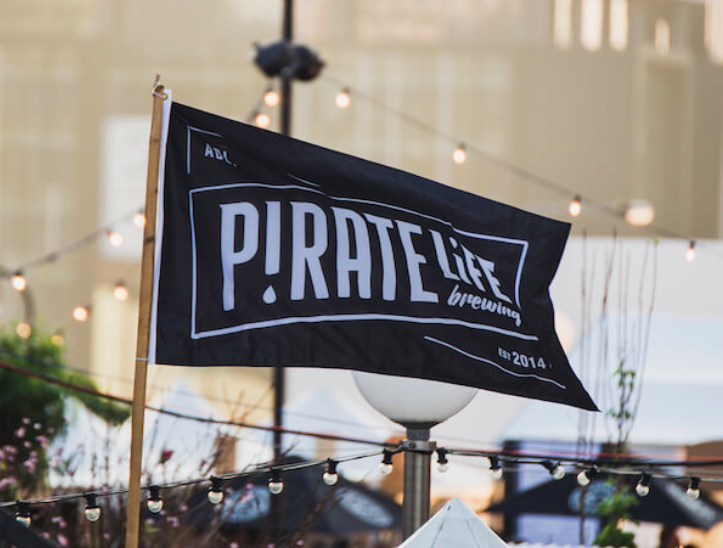Anheuser-Busch InBev has acquired the young-and-quickly-growing Pirate Life Brewing of Australia, further bolstering its craft presence on the southern continent. The world’s largest brewery disclosed the sale—which it made through its ZX Ventures growth and innovation group—on Thursday, suggesting Pirate Life’s canned offerings and “lifestyle-driven brand” complements and builds upon its current portfolio. It’s the beer giant’s second deal in just over two months in Australia, following the September buyout of 4 Pines Brewing. Financial terms of the deal were not disclosed.
[Disclosure: Good Beer Hunting's studio side is the Executive Producer of a Condé Nast project, October, in which ZX Ventures is an investor.]
In a statement, Jan Craps, president of ABI’s Asia Pacific South Zone, says the company will provide Pirate Life with the necessary resources in order to continue growing, namely with the buildout of a new brewing facility.
“We have a lot to offer each other,” Craps says. “Our joint growth plans will commence immediately with a $10 [million] investment in an exciting new South Australian brewery that will benefit the local economy.”
While this is the company’s second direct Australian acquisition in recent months through ZX, ABI has been making noteworthy noise down under for some time now. Most specifically, when the Belgian-owned beer giant took over SABMiller in 2016, it also retained the latter’s Australian affiliates, including Foster’s, which controls Carlton & United Breweries, proprietor of Victoria Bitter, one of the nation’s most popular beers. Reached by GBH, ABI says one of its “priorities” is to be a craft category leader on the continent.
As for Pirate Life, the company was only founded in 2014, but matured quickly in that time, building both a national footprint and taking part in a prominent international collaboration with U.S. craft stalwart Ballast Point. Furthermore, in July 2016, Pirate Life, whose head brewers have previously worked for BrewDog, launched its own distribution arm by way of purchasing its former partner. In a statement in light of the sale to the world’s largest brewing conglomerate, co-founder Jared Proudfoot says the move to partner with ABI represents a safe means of growth.
“The reality is we have run out of capacity at Hindmarsh,” he says. “With this partnership, we’re in a fortunate position to upgrade to a new, bigger brewery while dedicating Hindmarsh to innovate and craft a whole range of new styles to make sure we keep pushing the boundaries and evolving.”
Just as it would be for any Stateside brewery, however, jumping into bed with ABI is a controversial move for the Australian brewery. The Independent Brewers Association, an Australian trade group similar to the Brewers Association in the U.S., called the sale “disappointing.”
“Brewery acquisitions such as this grab headlines and generate significant commentary, but it needs to be remembered that there are more than 430 other Australian independent brewing businesses who will continue to put their heart and soul into their beers, and it is for them that the IBA exists,” the IBA says in a statement provided to GBH. “We will be doing all we can to help them take advantage of the opportunities created by ownership changes, such as launching an independence seal in the near future.”
For its part, IBA also took a pretty harsh swing at private equity investments in craft brewers this year, citing its muddying of the waters in the definition of “independence.”
It’s unlikely much, if any, of this is lost on Pirate Life. The company says it recently made a visit to 10 Barrel Brewing of Portland, Oregon, which itself sold to ABI back in 2015. There, the brewery says it saw first hand “the value of global shared learning.”
—Dave Eisenberg

